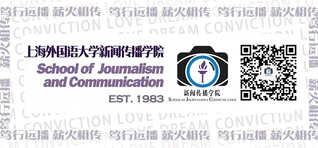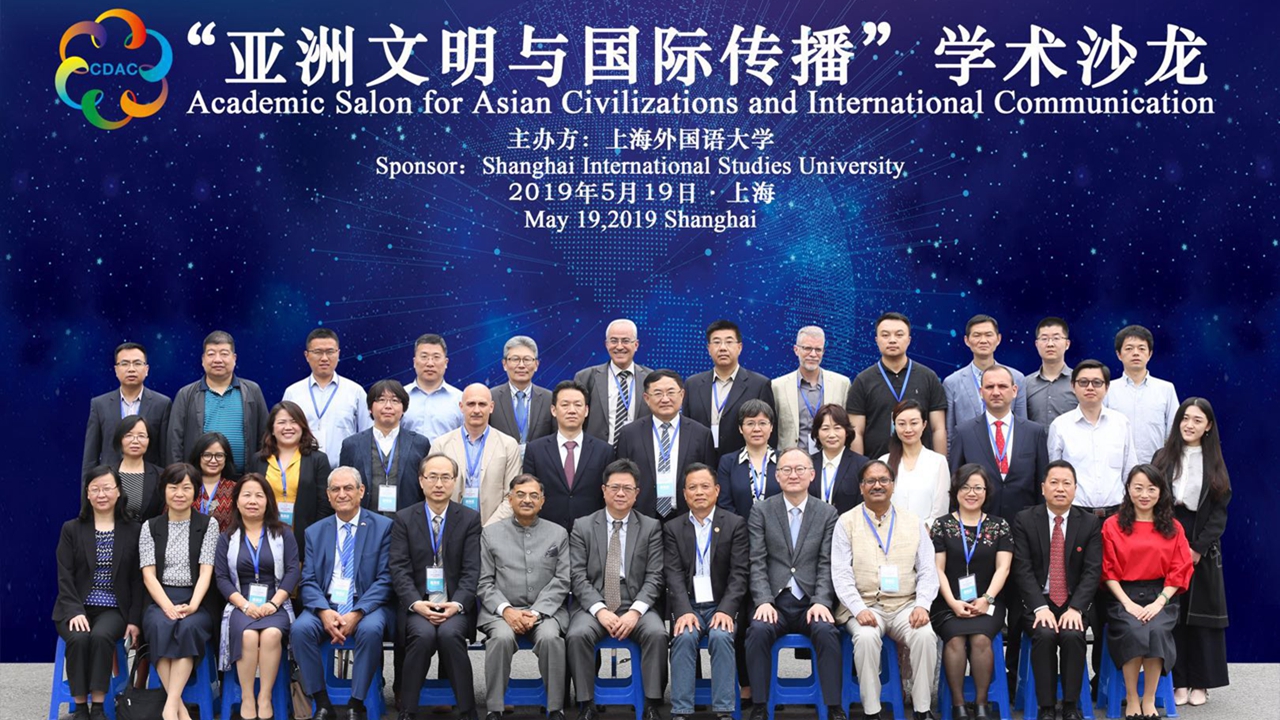
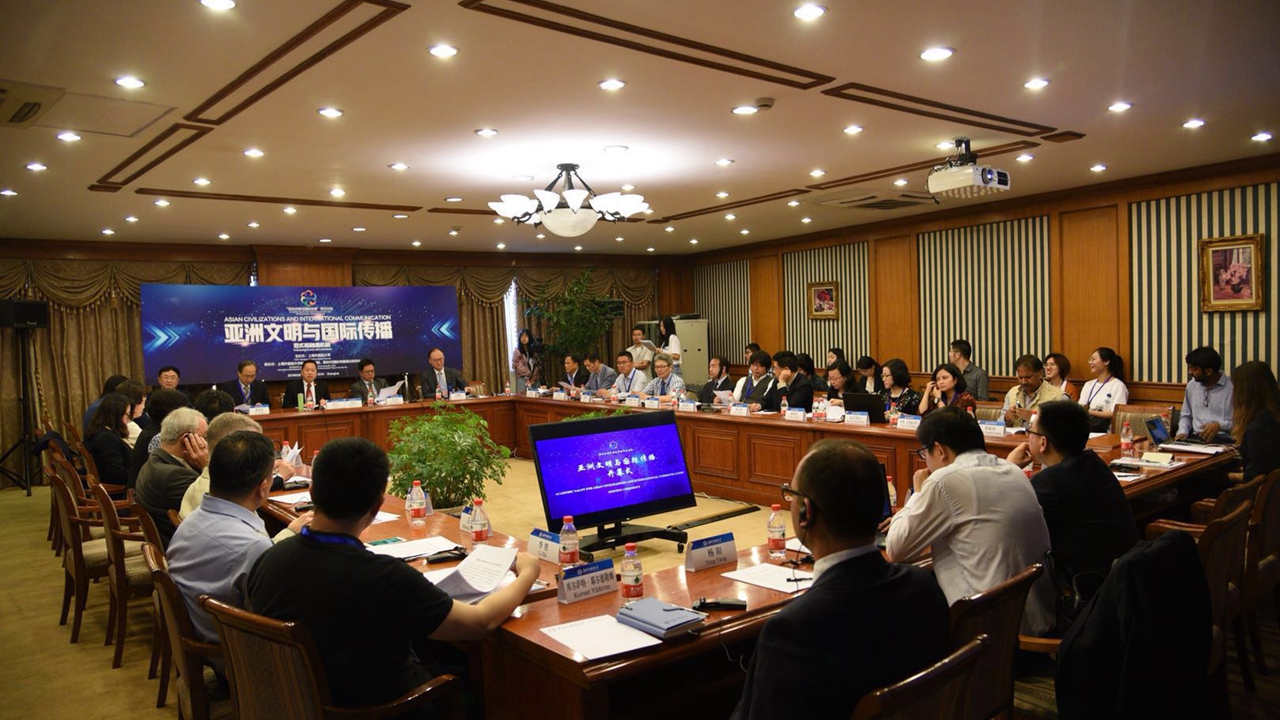
An academic salon for Asian civilizations and international communication achieves a success in promoting dialogue and communication among 40 scholars from 15 countries and regions, hosted by Shanghai International Studies University.
The theme of the salon is Asian civilizations and international communication: Paradigms and Mechanisms and is divided into four sections: Integration Mechanism of Asian Civilizations, Communication Paradigm of Asian Civilizations, Discourse Analysis of Asian Civilizations Communication and Case Analysis of Asian Civilizations Communication”.
Li Yansong, president of Shanghai International Studies University delivered a speech at the beginning of the salon. He said that “Interpret the world, translate the future” has been the slogan of the university. For years SISU has cultivated a large number of talents for the communication between Chinese and foreign culture which was consistent with the goal of the academic salon. As long as there will be communication among civilizations, countries can coexist and flourish.
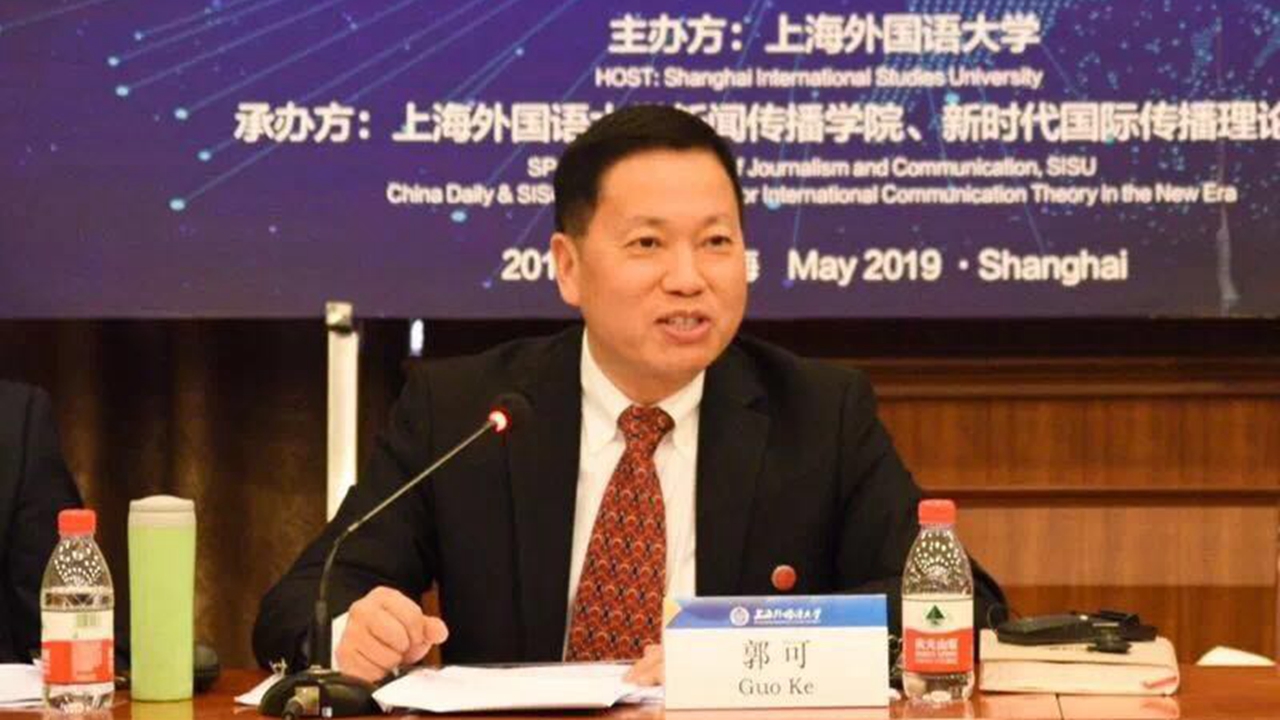
Integration Mechanism of Asian Civilizations
The salon began with Jaeho Hwang, a professor from the Hankuk University of Foreign Studies. Hwang mainly researched on China's diplomatic security. He analyzed Asian civilizations from the perspective of China's foreign and security policies and discussed international communication from the perspective of knowledge communication. Hwang concluded that international communication must be strengthened in order to enrich Asian civilization.
Feng Yu, chief editor of Global Times (Shanghai Edition) who is also an alumna of SISU said it was great honor to be back to the university. She emphasized the role of media in the international communication of the new Asian civilization and held we should not focus on the competition between the new media and traditional media. Instead, it was important to make the traditional and new media make full use of their advantages and work together.
Massoud Daher, executive director of Lebanon-China Friendship Association shared his ideas on the dialogue of Civilizations between East Asia and West Asia. He said that there was no other civilization so distinctive as the Asian civilization. He appreciated that President Xi put forward the Belt and Road initiative, promoting cultural and economic mutual learning among civilizations through dialogue among Asian civilizations.
The exchange of civilization covers many aspects and sports is one of the most important field. Iijima Keiko, a lecturer at Tokyo university of foreign Studies introduced a story of the father of judo and his instructions on Chinese students in Japan. She thought that there were many similarities between Kanno Jigoro's educational policy of moral, knowledge and physical education and China’s educational concept of the all-round development of moral, intelligence, sports and aesthetics.
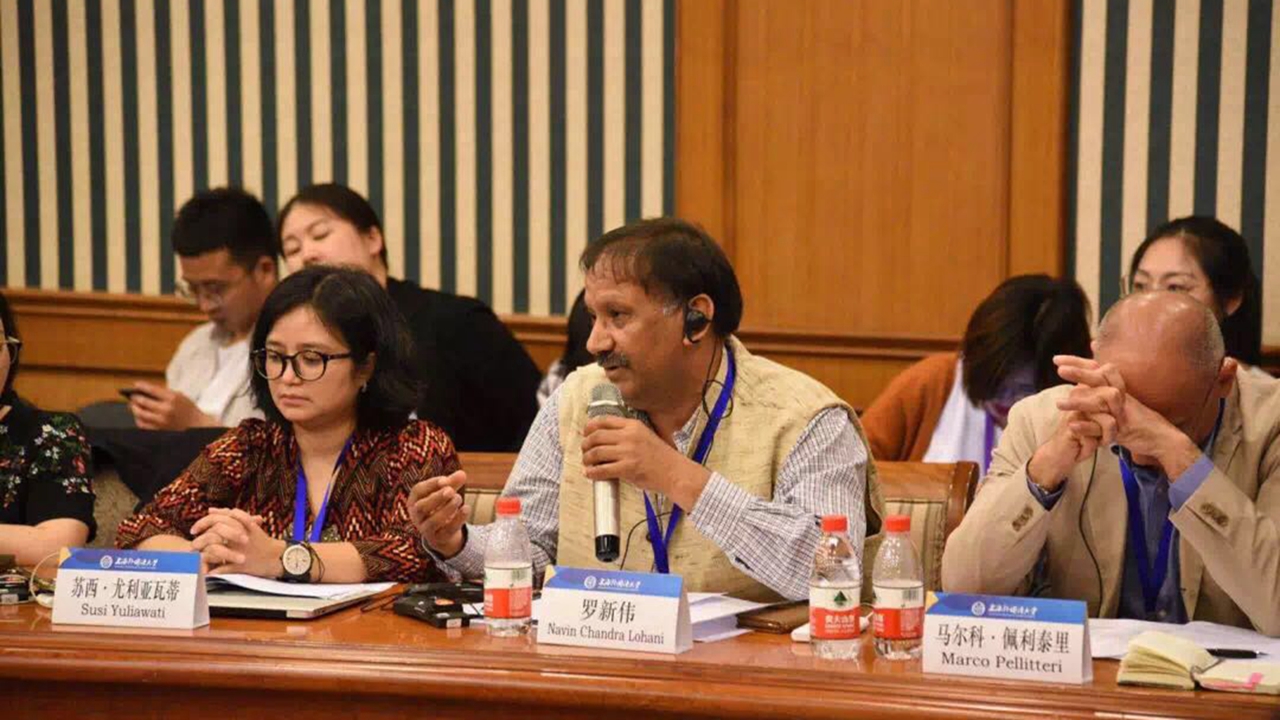
Communication Paradigm of Asian Civilizations
As a moderator of the second section, Jaeho Hwang first held that the theme in this section is suitable as Asian civilizations have affected the direction of world civilization. Asia is the birthplace of a great civilization and the Asian civilization has been influencing people's mentality, lifestyle, philosophy, social structure and international management.
Wu Xinbo, a professor of SISU, believed that Asia played a pivotal role in the world's cultural system. He advocated strengthening the dialogue among ancient civilizations, discovering and recovering the lost cultural origin since modern times from the source of Asian civilization. Based on that, we should revive Asian civilization and rebuild Asian system to promote and ensure the development and prosperity of Asia and contribute to the world.
Nguyen Thi Thanh Huyen, associate professor from Vietnam National University, highlighted some cases of using public diplomacy activities in order to promote and convey the values of various countries. She believed that genuine interaction activities, such as language teaching, films and other public diplomacy projects that cater to interests of locals, can help build a sustainable relationship between the two countries.
Western civilization did play an important role in promoting modern human civilization, especially industrial civilization, but in the era of globalization, Asian civilization with its concept of diversity, equality and mutual learning played a more important role. The important concepts proposed by the Asian civilization, such as the new concept of Asian civilization that advocated civilization and confidence, the relationship among civilizations that advocated diverse and harmonious coexistence, and the model of equality among civilizations should be valued, said by Zhai shilei, a professor at China university of mining and technology.
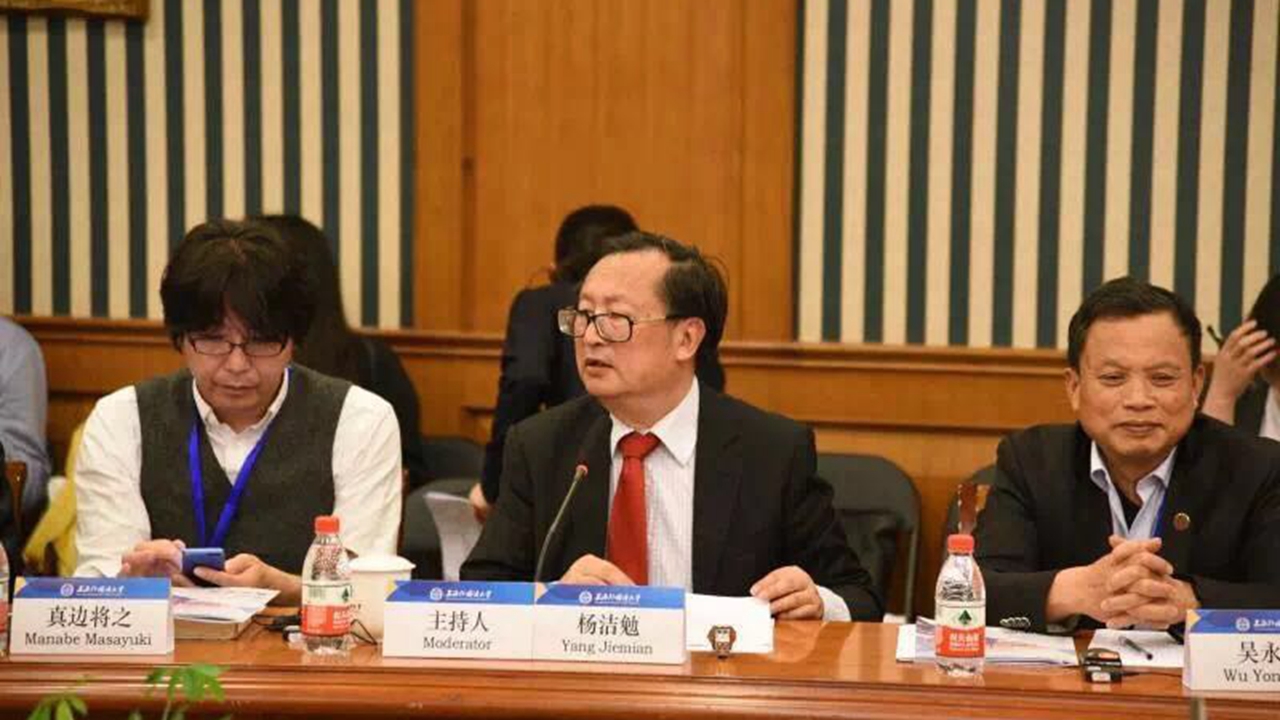
Discourse Analysis of Asian Civilizations Communication
Arieh Saposnik, associate professor from Ben-Gurion University of the Negev in Israel researches on modern Israeli culture and Hebrew civilization. He argued that Arab civilization served as a bridge among Asian civilizations. To a certain extent, the scope and mode of civilization's communication are closely related to the distribution of the floating population.
SISU Professor Lian Degui expressed his understanding on Japanese culture and Chinese culture by summarizing the spirit of Japanese tea ceremony. He held that the Japanese tea ceremony originated from China and is ultimately Chinese Zen culture. He thought tea ceremony was the result of the spread and immigration of Chinese culture, the extension of Chinese culture and the variation of Chinese culture. Japanese culture is closely related to Chinese culture. Meanwhile, Chinese culture and Japanese culture have their own uniqueness in the whole Asian culture and east Asian culture.
Asian civilizations with a long history and rich diversity were precious resources for human society. Different Asian civilizations were closely related to each other, and the diversity of civilizations was the advantage of Asian civilization in moving towards the center of the world civilization, said Navin Chandra Lohani, a professor from the department of Hindi at CCS University.
Case Analysis of Asian Civilizations Communication
In the last section of the academic salon, professors from India, turkey, Mongolia, Indonesia and China put forward some specific cases about Asian civilizations communication.
Li Zhi, a professor of Communication University of China took documentary as a phenomenon of cultural communication and illustrated the role of Chinese documentary in international communication. He thought that the development of documentary industry was good now and hoped documentaries can be regarded as a carrier, also a bridge for cultural communication to promote more cooperation and exchanges in the future.
Focusing on the cross-cultural communication of Chinese animated movies, Cai Yingzhou, a professor from SISU, elaborated on the changing strategies and production methods in promoting China's external image from image positioning, discourse structure and narrative reconstruction.
Although the conquest of nature brought great wealth to human beings, it caused great disasters, which seriously threatened the survival and development of human beings. The issue of sustainable development was essentially the relationship between man and nature. It was extremely important to have a deep understanding of the ecological wisdom of different human civilizations, to analyze and compare the ecological wisdom of different civilizations under such circumstances, said Chimedtseye Menerel, dean of the Confucius Institute at the National University of Mongolia.
Professor Wu Xinbo, Wu Yongnian, Lian Deigui and Chief editor Liu Peng made a short conclusion on the four sections in the end.
Guo Ke, dean of the School of Journalism and Communication in SISU added that the purpose of the academic salon initially was to summarize on the trends, features and challenges of this topic. “The goal has been achieved now through communications among nearly 40 scholars today”, he said with confidence.
The Academic Salon for Asian Civilizations and International Communication, a sideline event of the Conference on Dialogue of Asian Civilizations in Beijing, was held on May 19 in British Meeting Room at the Shanghai International Studies University, Hongkou Campus.

 |Hongkou Campus|550 Dalian Road (W), Shanghai 200083, China |Songjiang Campus|1550 Wenxiang Road, Shanghai 201620, China
|Hongkou Campus|550 Dalian Road (W), Shanghai 200083, China |Songjiang Campus|1550 Wenxiang Road, Shanghai 201620, China